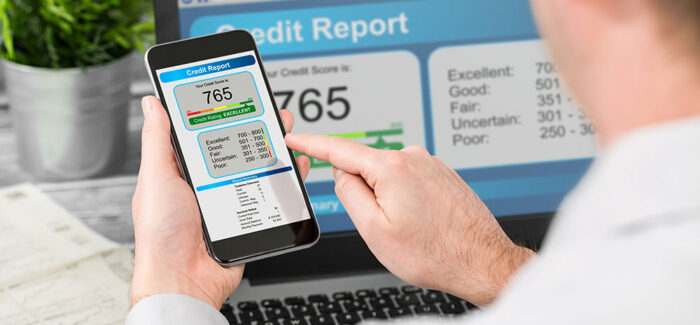
- August 26, 2021
- Mark Elwes
Tips to Improve Your Credit Score to Take Out a Personal Loan
Table of Contents
Personal loans are unsecured loans, and the best part about these loans is you can fund any of your needs. Whether you need money for your wedding or you need it to refurbish your home, these funding sources are ideal for you. However, getting approval for these loans is not as easy as it seems.
First off, these loans are unsecured, which means you do not have to put down collateral. A lender will surely want back money they have lent out, and since the lack of collateral increases the risk on the part of the lender, they may be a bit reluctant to sign off on your application or charge a high interest rate.
Personal loans are expensive because they are unsecured. To mitigate the risk of default, the lender tries to charge a high interest rate. However, you will likely get these loans at a more expensive offer in case of a poor credit rating.
Although you have a chance to take out loans for bad credit in the UK in case of a less-than-perfect credit score, the loan size will be small. You will have to pay off the debt in a lump sum within just a month.
However, if you are looking to borrow a large amount of loan, it can be quite difficult. You may need to arrange a guarantor with a good credit rating or collateral in case you have a bad credit rating.
Putting down collateral and arranging a guarantor at the time you need money can be quite challenging because you need cash this instant, and you cannot arrange either of the things within a short span of time.
This is why it is suggested to improve your credit score. Lenders do not hesitate in lending you money as long as you have a good credit rating.
Tips to improve your credit score
If your credit report is not stellar, you should find out the ways to improve your credit rating. Here are the tips on how you can do it.
Build creditworthiness
It is not just a bad credit score that makes it complicated for you to take out the best unsecured loans. If you have never borrowed money before, it is difficult for a lender to judge how likely you will manage to keep up with payments. In that case, you will end up borrowing money at a higher interest rate.
This is why it is recommended to build your credit rating. Taking out a small loan can help you borrow a large amount of money down the road at affordable interest rates. If you pay off the debt on time, you will have a good credit score.
This will prove your creditworthiness to lenders. However, try to borrow money that you can pay down in monthly installments over a specific time. This is because when you meet all payments on time, it will prove to the lender that you were committed to financial payments despite ups and downs in your financial conditions.
Take care of your spending
You should be careful about your spending if you do not want to borrow money for your regular expenses. Most people have impaired credit scores because of their overspending habits. You buy everything, whatever you want, and then eventually you end up running out of your money.
You do not even have money to pay for your regular expenses, and you start borrowing. For instance, you have borrowed £100 to pay your utility bills because you were left not enough money. When you cannot arrange £100 for your utility expenses, how will you be able to pay off the interest on top of that?
As a result, you end up with an endless cycle of debt, which takes a toll on your credit score. This is why it is suggested to take care of your spending. You should create a budget so you know how much money you can spend in a month. This can help you avoid borrowing for funding your regular expenses. Try to set aside for a rainy day as well. Having an emergency cushion can help you tide over when unexpected expenses pop up.
Reduce debt-to-income ratio
The debt-to-income ratio plays a paramount role to decide whether your credit score will be good or bad. This is the ratio that tells about the amount of debt you have taken on against your income. The higher the ratio, the lower the credit score will be.
Experts suggest that the debt-to-income ratio must not be more than 30%. However, you can still easily qualify for personal loans if it is somewhere between 30 and 35%. There are some scenarios when the debt-to-income ratio can be high between 35% and 45%.
This should raise an alarm bell. You should immediately take specific steps to reduce the debt. At this stage, you can manage to whittle down the size of the debt to improve your credit score. However, when it goes beyond 45%, a lender may not be comfortable lending you money.
As a result, they may turn down your application. If you have found that your debt-to-income ratio is more than it should be, you should start:
- Paying more than the minimum debt payments
- Avoid taking out new debt
- Increase your income so you can quickly pay off the debt
- Try to consolidate your debts when you have multiple loans
- Create a budget and make sure that you stick to, it so you do not overspend and stick to the payment plan
Avoid multiple applications
If you have put in the application to the lender, make sure that you wait for their response instead of filling in multiple applications. This is because if you do so, it will allow an interpretation to the lender that you are desperate to borrow money.
Further, every time you put in the application, five points from your credit score are deducted. This is because it is assumed that you are not financially savvy that you need to borrow money. If you put in multiple loan applications, your credit score will drastically plummet. Make sure that you do not do it down the road.
Check your credit report does not have errors
Your credit file must record accurate information, whether it is about your debt payments or your contact details. Sometimes you may have some information on your report that you do not identify. For instance, a default may show that you have not committed, your contact details may be incorrect.
Make sure that you check your credit file periodically, so you do not end up getting surprises. If this is the case of identity theft or erroneous information, you should immediately dispute the error. It may take some time for credit reference agencies to rectify the information.
The final word
If you are looking to take out a personal loan, you should undoubtedly have a good credit history. Although a couple of lenders can lend you money, you will end up paying a high interest rate. If you do not have a credit history, you should take out a small loan to build creditworthiness. If you have already taken on debt and you have impaired your credit rating, you should settle your outstanding dues as soon as possible.

Mark Elwes is the Editor-in-Chief at Extramilefinance. He is a notable member of the content strategy team since his joining in 2017. Driven by his fondness for the finance industry, he has spent years gathering as much knowledge as possible about various financial products that include loans also. Previously, Mark worked as a senior journalist writer with experience in writing blogs and articles.










